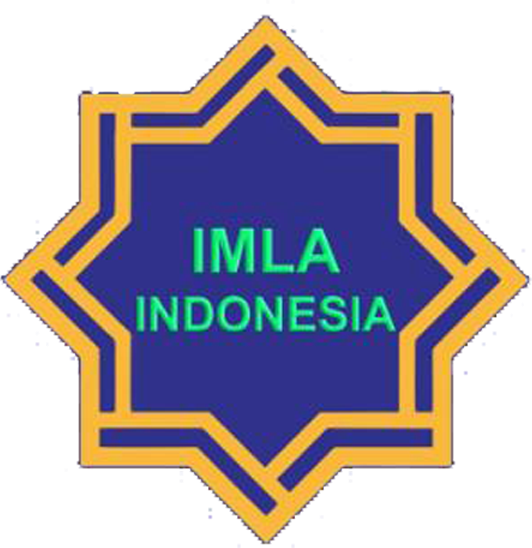DEVELOPING NAHWU LEARNING MODEL BASED ON “TRANSLATE SELF-REVIEW” (TSR)
Abstract
This article aims to describe the understanding of TSR and its meaning in the context of community language learning and experimental learning. For this reason, literature review and FGD are used as research methods. The TSR model learning method is learning based on translating the mother language into the target language. The TSR learning model has meaning that is relevant to the principles of Charles A. Curran's community language learning model and experiental learning from David Kolb.
Artikel ini bertujuan untuk menggambarkan pemahaman Translate Self-Review (TSR) dan maknanya dalam konteks pembelajaran bahasa komunitas dan pembelajaran eksperimental. Untuk alasan ini, tinjauan literatur dan FGD digunakan sebagai metode penelitian. Metode pembelajaran model TSR adalah pembelajaran yang didasarkan pada penerjemahan bahasa ibu ke bahasa target. Model pembelajaran TSR memiliki makna yang relevan dengan prinsip-prinsip model pembelajaran bahasa komunitas Charles A. Curran dan pembelajaran pengalaman (eksperimental) dari David Kolb.
Keywords
Full Text:
PDFReferences
Alkan, F. 2016. Experiential Learning: Its Effects on Achievement and Scientific
Bruner, J. S. 1961. "The act of discovery". Harvard Educational Review 31 (1): 21–32
Chesimet M. C., Githua B.N, & Ng’eno, J. K. 2016. Effects of Experiential Learning Approach on Students’ Mathematical Creativity among Secondary School Students of Kericho East Sub-County, Kenya. Journal of Education and Practice, Vol.7, No.23.
Fayed, I.T, .2016). The Influence of Community Language Learning Approach on Improving the Students' English-Speaking Skills at the Arab American University. Master’s Thesis. An-Najah National University.
Irhamni dan Maksum. 2015. Translate Self-revieuw Karya Kyai Rahmat Al-Arifin Muhammad Ibn Ma’ruf. Malang: Malak
Kamel, H. & Al-Jamal, D. 2009. The Effect of Community Language Learning Method on Female Jordanian Tenth Grade Students' Achievement. Jordan Journal of Educational Sciences Vol. 5, No. 2, pp 159-169
Khasairi, Moh. 2016. Tahthwir Mawad al Nahwi al Wadzifi wa Atsar istikhdamiha fi Raf’I Dawafi’ Thalabah wa Tahshilihim fi Ta’allum an Nahwi. Disertasi Prodi Pendidikan Bahasa Arab UIN Maliki tidak dipublikasikan
Khusna, F. 2017. The effectiveness of using community language learning (CLL) to teach students’ mastery of speaking skill for transactional conversation. Thesis.English Education Department. Islamic Education and Teacher Training Faculty
Kolb, D.A. 1984. Experiental Learning Theory: Experience as Source of Learning and Development. Englewood Cliffs, NJ: Prentice Hall
Lan, D., T., H., Huyen, P.M., & Huong, T.T., 2017. The Effectiveness Of The Experiential Learning Activities In Developing English Speaking Skills For Students At Thai Nguyen University Of Economics And Business Admininistration –TNU. IOSR Journal of Research & Method in Education. Volume 7, Issue 5
Lantolf, J. P. 2001. Socio-cultural theory and Second Language Learning. London. Oxford. University Press.
Miles, M.B. & Huberman, A.M. 1992. Qualitative Data Analysis. London: Sage Publication
Nurhasanah, S. 2015. The Use of CommunityLanguage LearningMethod to Increase the Students’ Participationin Classroom. REGISTER, Vol. 8, No. 1. Process Skills: Journal of Turkish Science Education. Volume 13, Issue 2, 15-26
Richards, J.C., & Rodgers, T. S 1986. Approaches and Methods in Language Learning. Cambridge University Press,
Wood, D., & Ross, G. 2006. The role of tutoring in problem solving. In J. S.
DOI: http://dx.doi.org/10.17977/um056v4i1p1-18
Refbacks
- There are currently no refbacks.
Copyright (c) 2020 Irhamni Irhamni, Moh. Khasairi, Mohammad Ahsanuddin

This work is licensed under a Creative Commons Attribution-NonCommercial 4.0 International License.
AL-ARABI is indexed by:
Editorial Office:
Al-Arabi: Journal of Teaching Arabic as a Foreign Language
Arabic Department, Faculty of Letters, Universitas Negeri Malang (UM)
Jalan Semarang 5, Malang 65145, Indonesia.
Telephone: (0341) 551312 Ext. 239. Fax (0341) 567475.
E-mail: alarabi@um.ac.id

Al-Arabi: Journal of Teaching Arabic as a Foreign Language is licensed under a Creative Commons Attribution 4.0 International License.
Based on a work at http://journal2.um.ac.id/index.php/alarabi/










